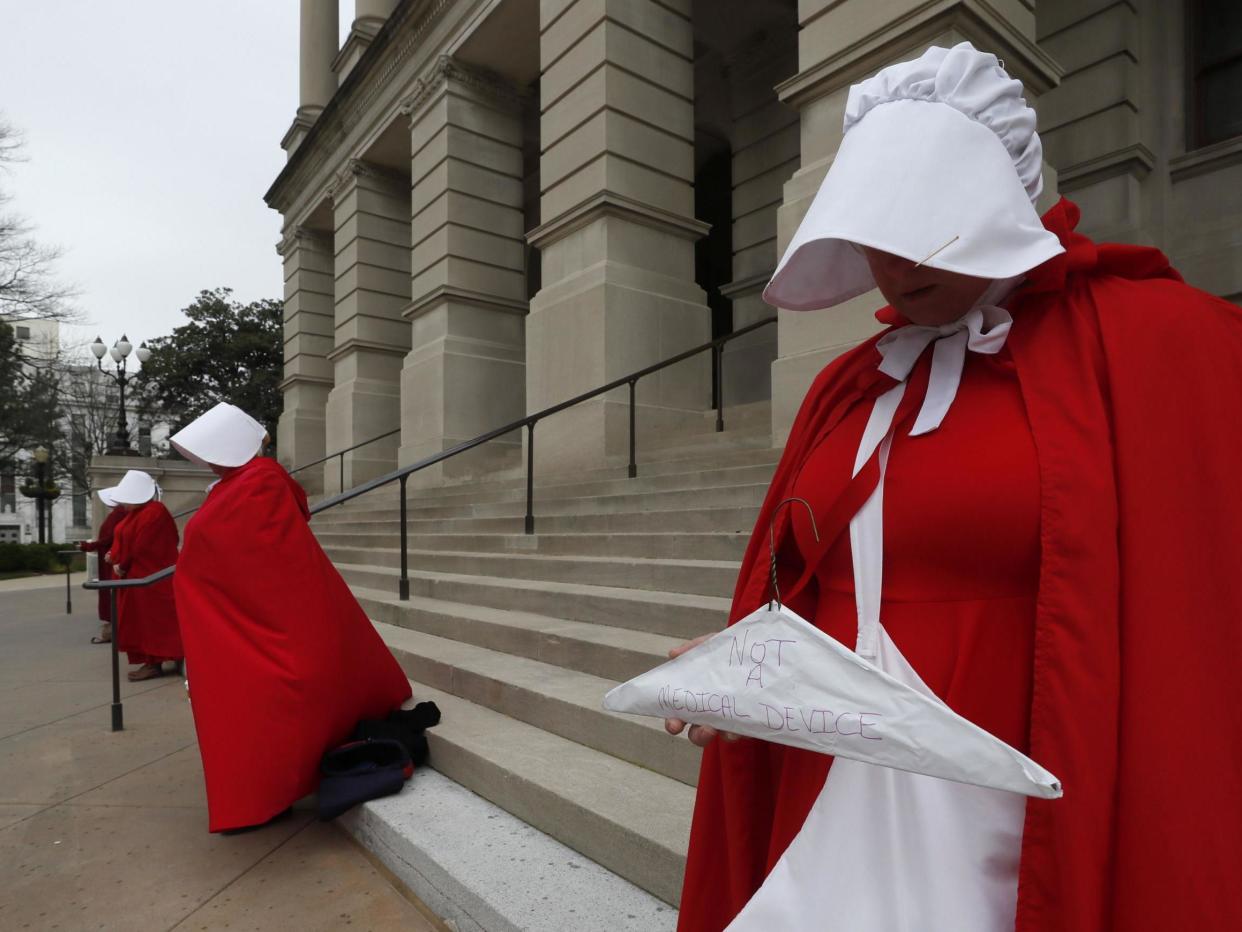Ohio abortion law would require doctors to attempt impossible procedure of re-implanting ectopic pregnancies in uterus

Anti-abortion politicians in Ohio want doctors to attempt to re-implant ectopic pregnancies – a procedure derided by one doctor as “pure science fiction”.
Members of the state’s Republican Party proposed a law this month that would force physicians to attempt an operation for which experts say technology does not currently exist.
An ectopic pregnancy is one in which a fertilised egg implants somewhere other than a woman’s uterus, which in most cases ends up being inside a fallopian tube. The situation can be fatal if left untreated.
Experts say re-implanting an ectopic pregnancy cannot currently be done. Addressing John Becker, a co-sponsor of the HB413 bill who earlier this year proposed a similar rule, Dr Daniel Grossman said: “We just don’t have the technology. So I would suggest removing this from your bill, since it’s pure science fiction.”
The academic added in a Twitter thread in May: “Unfortunately, ectopic pregnancies cannot continue to a live birth. If untreated, as a pregnancy grows, the Fallopian tube (where 96% of ectopics develop) gets stretched to the point of rupture & can cause massive bleeding. 4% of maternal deaths are related to ectopic pregnancy.”
The American College of Obstetricians and Gynaecologists says on its website: “An ectopic pregnancy cannot move or be moved to the uterus, so it always requires treatment.”
Ohio’s HB413 would also completely outlaw performing or having an abortion in Ohio, introducing an offence called “abortion murder” and potentially conferring the death penalty on offenders. It categorises an embryo as an “unborn human” from the point of fertilisation. A woman may avoid prosecution if she claims she was forced to terminate her pregnancy and files a police report, the text says.
Doctors may not be charged if they terminate a pregnancy in the course of surgery in cases where “it is highly probable that the pregnant woman will die from a certain fatal condition before her unborn child is viable”, it adds. But they must take “all possible steps to preserve” the foetus and the life of the woman, including trying to re-implant an ectopic pregnancy into her womb.
It is the latest in a string of laws in several states designed to force a showdown with the Supreme Court, which anti-abortion activists hope will one day overwrite its historic Roe vs Wade ruling that said women should be free to seek a termination.
In April a district judge struck down as unconstitutional so-called heartbeat law that had been passed in Ohio and signed by the governor Mike DeWine. Its proponents admitted it had been crafted to form “the next incremental step in our strategy to overturn” the landmark Roe decision.
HB413’s objective of totally outlawing terminations “has been the goal of the grassroots of the pro-life movement since” the 1973 ruling, said Margie Christie of the conservative Christian Right to Live Action Coalition of Ohio.
Right-wing Christian supporters form a key part of Donald Trump’s voter base. He recently claimed that the evangelical bloc “has never been so energised as it is right now” because of the impeachment investigation into his dealings with Ukraine.
Mike Pence and Mike Pompeo, the vice president and secretary of state, are committed believers. Alex Azar, the secretary of health and human services, has boasted of the administration’s anti-abortion stance and called his department “the department of life”. For his part, Mr Trump has backed annual “march for life” protests against terminations.
The proposals contained in HB413 could “place individuals experiencing a miscarriage at risk of criminal prosecution”, according to pro-choice activists. Kellie Copeland, of NARAL Pro-Choice Ohio, added in a statement: “If all of that weren’t bad enough, these politicians don’t care that these kinds of bans could also ban some contraceptives and fertility treatments.”
Read more
Planned Parenthood wins $2m lawsuit against anti-abortion group

 Yahoo News
Yahoo News 
